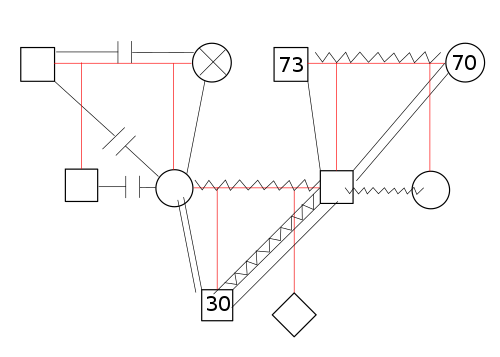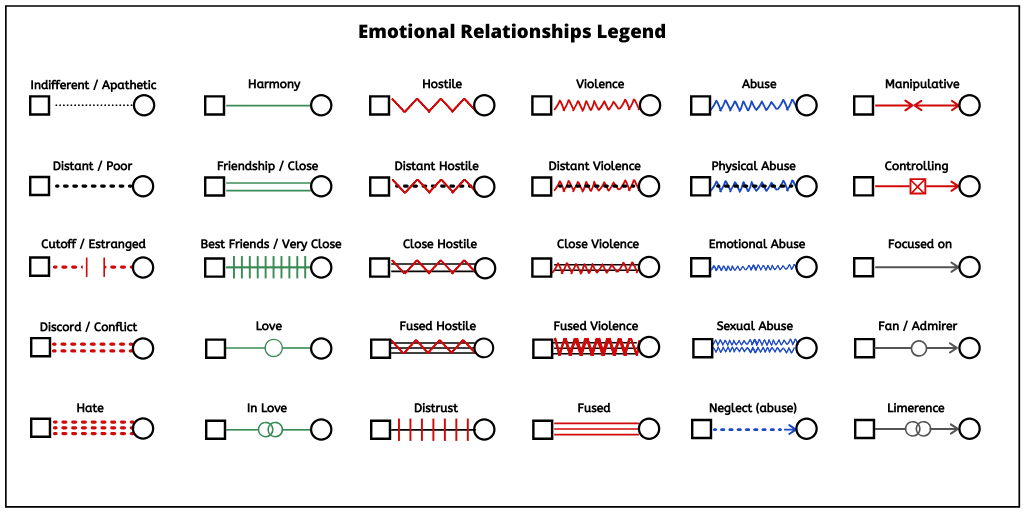Systemic Family Development Theory
The Systemic Family Development Theory asserts that families are (a) complex, (b) extremely diverse related to the types, numbers, and timing of transitions and stressors, and (c) multigenerational systems. It also assumes that

families share common processes through their development, but the processes must take into account intergenerational influences and variations within and between all families. No two families are alike.[1]
Many studies have shown that patterns of family interactions are similar within families across generations.[2] [3] Intergenerational transmissions of conflict, trauma, communication styles, parenting practices, etc., continue to be examined.
The following genogram (a pictorial display of family relationships and medical history) shows relationship patterns across generations within a family.


Key Takeaways
- Families are complex, diverse, and multigenerational.
- Families share common processes through their development, but there are intergenerational influences and variations between the number and types of crises, transitions, and stressors.
- Family interactions are typically similar across generations (intergenerational).
- Laszloffy, T. A. (2002). Rethinking family development theory: Teaching with the Systemic Family Development (SFD) Model. Family Relations, 51(3), 206-214. ↵
- Kovan, N. M., Chung, A. L., & Sroufe, L. (2009). The intergenerational continuity of observed early parenting: A prospective, longitudinal study. Developmental Psychology, 45(5), 1205–1213. ↵
- Conger, R. D., Belsky, J., & Capaldi, D. M. (2009). The intergenerational transmission of parenting: Closing comments for the special section. Developmental Psychology, 45(5), 1276-1283. ↵

